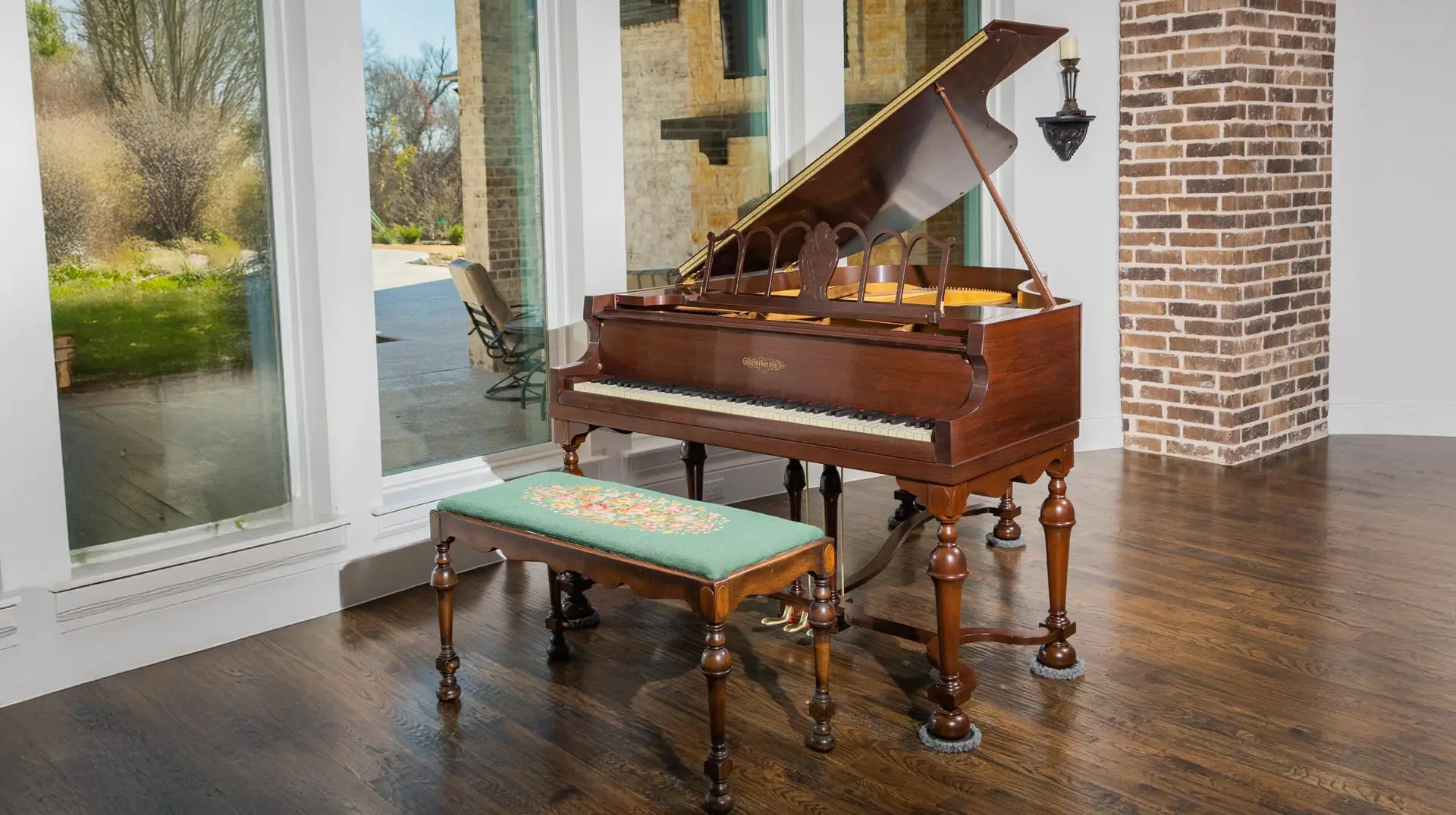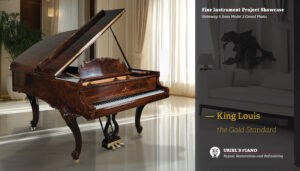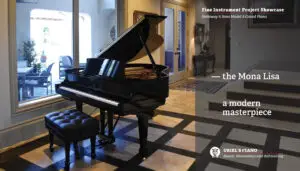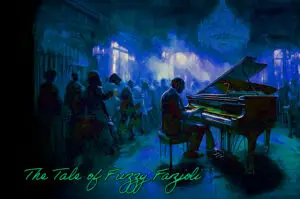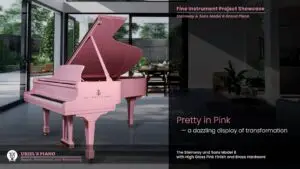Dallas, Texas — Uriel’s Master Woodworks piano restoration experts display the American Chickering and Sons Classic Grand Piano, complete with a stunning satin walnut hand-rub finish.A brief history of the Grotrian Piano Company
A history of the Chickering & Sons American piano manufacturer
Chickering & Sons was an American piano manufacturer located in Boston, Massachusetts. The company was founded in 1823 by Jonas Chickering and James Stewart, but the partnership dissolved four years later. By 1830 Jonas Chickering became partners with John Mackay, manufacturing pianos as “Chickering & Company” and later “Chickering & Mackays” until the senior Mackay died in 1841 and reorganized as “Chickering & Sons” in 1853. Chickering pianos continued to be made until 1983.
It was P.T. Barnum who persuaded Jenny Lind – the Swedish Nightingale – to make a concert tour of the United States. After her agreement, Barnum commissioned the Chickering company to manufacture a custom grand piano for her nationwide tour, ultimately involving 93 performances. The piano was completed by August 1850; Lind arrived in September, and the concert series began in Boston. Her pianist was Otto Goldschmidt, whom she married at the end of her tour.
Coincidentally, as the tour began, Henry E. Steinway (Steinweg) and his large family arrived in New York as immigrants from Germany. Henry attended the opening night of the NYC concert series but showed little interest in the diva. His profound interest was in the Chickering piano, to which he dashed for such careful examination that he nearly had to be hauled away so the concert could begin.
On December 1, 1852, a fire destroyed Chickering’s piano factory at 336 Washington Street in Boston. One policeman was killed. The walls of the building collapsed and set adjoining structures on fire. A new factory was built in 1853-54 at 791 Tremont Street in Boston.
Jonas Chickering made several major contributions to the development of piano technology, most notably by introducing a one-piece cast-iron plate to support the greater string tension of larger grand pianos. He also invented a new deflection of the strings and, in 1845, the first convenient method for over-stringing in square pianos. Instead of setting the strings side by side, the company substituted an arrangement of the string in two banks, one over the other. This not only saved space but brought the powerful bass strings directly over the most resonant part of the soundboard, a principle used to this day in constructing all pianos, both grand and uprights.
Chickering was the largest piano manufacturer in the United States in the middle of the 19th century but was surpassed in the 1860s by Steinway. In 1867, Jonas’s son Frank Chickering had the Imperial Cross of the Legion of Honour. One of the world’s most prestigious non-military awards, bestowed upon him by Emperor Napoleon III for services to the art of music, one of more than 200 awards the piano manufacturer garnered over the years.
The company became part of the American Piano Company (Ampico) in 1908 and continued after the merger in 1932 of American with the Aeolian Company to form Aeolian-American. That company went out of business in 1985, and the Chickering name continued to be applied to new pianos produced by Wurlitzer and then the Baldwin Piano Company.
To read the full un-edited article, please go to:https://en.wikipedia.org/wiki/Chickering_%26_Sons#Further_reading

